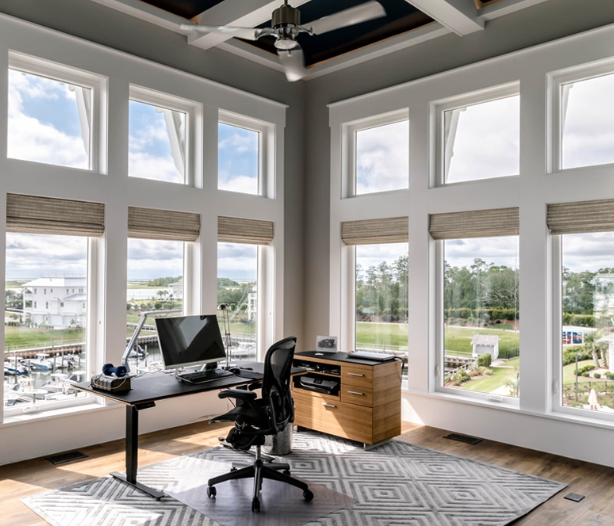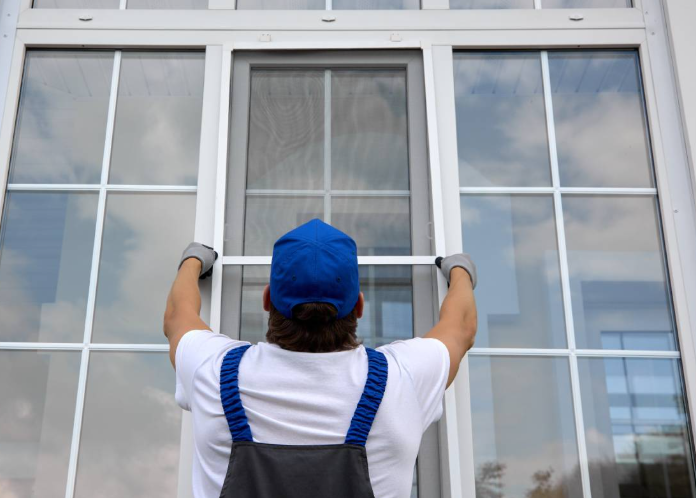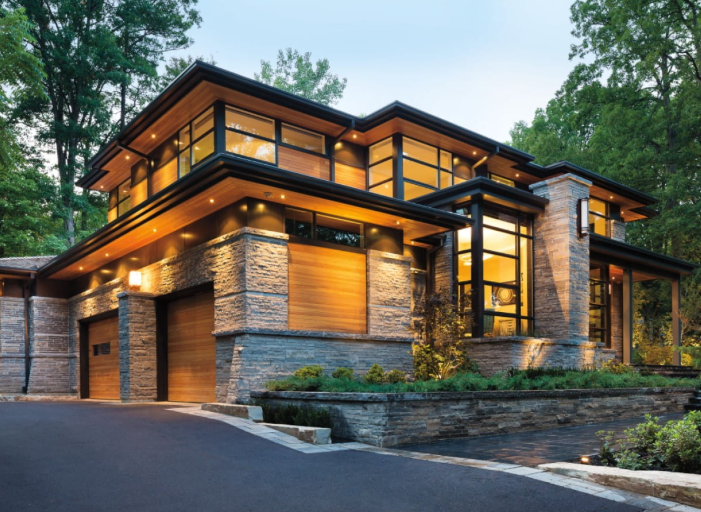Looking at your old windows and wondering if it’s time for an upgrade? You’re not alone! Many homeowners ask this same question every year.
Are your windows old and drafty? Do you feel cold air sneaking in during winter? Maybe your energy bills keep going up? If you said yes to any of these, it might be time to think about window replacement.
In this guide, we’ll help you understand everything about replacing windows in your home. We’ll talk about costs, benefits, and the best window options for 2025. Let’s make this decision easier for you!
Why Should You Consider Replacing Your Windows?

Energy Savings That Really Add Up
Windows can account for 25% to 30% of your home’s heat loss, which means old windows are literally letting your money fly out the window! Here’s what energy-efficient windows can do for you:
- Lower utility bills every month
- Better temperature control in your home
- Reduced carbon footprint for the environment
- Save you between 7% and 15% in annual energy costs
Boost Your Home’s Value
Did you know that new windows can increase your home’s worth? The return on investment for window replacement is 70% to 85%. This means if you spend $10,000 on windows, your home’s value could go up by $7,000 to $8,500!
Make Your Home Look Amazing
New replacement windows can completely change how your house looks from the outside. They give you:
- Better curb appeal
- Modern style that matches today’s trends
- Cleaner lines and fresh appearance
- Improved home security with better locks
How Much Does Window Replacement Cost in 2025?
Let’s talk numbers! The average window replacement cost ranges from $614 to $1,309 per window as of 2025. But remember, the final cost depends on many things.
Window Replacement Cost Breakdown
| Window Type | Price Range Per Window | Best For |
|---|---|---|
| Vinyl windows | $300 – $800 | Budget-friendly, low maintenance |
| Wood windows | $600 – $1,200 | Traditional look, natural beauty |
| Fiberglass windows | $500 – $1,500 | Energy efficiency, durability |
| Aluminum windows | $400 – $1,000 | Modern homes, minimal frames |
What Affects Window Replacement Costs?
Several things can make your window installation cost more or less:
- Size Matters: Bigger windows cost more than smaller ones
- Window style: Double-hung windows, casement windows, and picture windows all have different prices
- Frame material: Vinyl is cheapest, fiberglass costs more but lasts longer
- Glass type: Double-pane or triple-pane glass with low-E coating costs more Installation
- Complexity: Hard-to-reach windows cost more to install
Energy efficiency features: Energy Star windows with special coatings cost more upfront
What Are the Best Window Materials for Your Home?
Choosing the right window frame material is super important. Let’s look at your options:

Vinyl Windows: The Popular Choice
Pros:
- Affordable and budget-friendly
- Low maintenance – no painting needed
- Good energy efficiency
- Tend to have tighter seals than wood windows
Cons:
- Limited color choices
- Can’t be painted if you want to change colors
- Not as strong as other materials
Fiberglass Windows: The Energy Efficiency Champion
Fiberglass windows are more energy efficient since they have an average U-factor rating of .20 compared to vinyl’s 0.30. Here’s why they’re great:
Pros:
- Most energy efficient option
- Longer lifespan compared to vinyl
- Can be painted any color
- Expands and contracts very little with temperature changes
- Durable and strong
Cons:
- Higher upfront cost
- Fewer style options than vinyl
- Wood Windows: The Classic Beauty
Pros:
- Beautiful natural look
- Can be painted or stained
- Great insulation properties
- Adds character to your home
Cons:
- High maintenance – needs regular painting
- More expensive than vinyl
- Can rot or warp over time
Which Window Features Should You Look For?
Energy Efficiency Features
When shopping for energy-efficient replacement windows, look for these important features:
- Double-pane or Triple-pane Glass: More glass layers mean better insulation
- Low-E coating: Special coating that reflects heat
- Argon gas fill: Gas between glass panes for extra insulation Warm edge spacers: Keep the glass panes properly separated
- Energy Star certification: Government seal of approval for efficiency
Energy Efficiency Comparison Chart
| Feature | Energy Savings | Cost Impact |
|---|---|---|
| Single-pane | 0% (baseline) | Lowest cost |
| Double-pane | 10-15% savings | Moderate cost |
| Triple-pane | 15-20% savings | Highest cost |
| Low-E coating | +5-10% extra savings | Small cost increase |
What Are the Best Window Types for Your Home?
Not all windows are the same. Here’s what to look for when choosing the best replacement windows:
| Feature | Why It’s Good |
|---|---|
| Double-pane glass | Saves energy and keeps temperature stable |
| Low-E coating | Blocks UV rays and protects furniture |
| Triple-pane windows | Great for soundproofing and extreme weather |
| Energy Star certified | Meets high standards for energy efficiency |
Tip: Choose windows with a strong warranty on both glass and frame!
How Do You Know When It’s Time to Replace Windows?
Clear Signs Your Windows Need Replacement
Look for these warning signs around your home:
- Drafts and Air Leaks: Feel cold air coming through closed windows
- High energy bills: Your heating and cooling costs keep rising
- Condensation: Water droplets form between glass panes Difficulty opening: Windows stick or won’t stay open
- Visible damage: Cracked glass, rotting frames, or peeling paint
- Outside noise: You hear too much street noise inside Fading furniture: UV rays are damaging your furniture and carpets
Age of Your Current Windows
| Window Age | Replacement Priority |
|---|---|
| 0-10 years | Usually no need to replace |
| 10-15 years | Consider if having problems |
| 15-20 years | Good time to start planning |
| 20+ years | Definitely consider replacement |
What’s the Best Time to Replace Windows?
Seasonal Considerations
Spring and Fall: Best weather for installation Summer: Good weather but contractors are busy Winter: Possible discounts but weather challenges
Planning Your Window Replacement Project
- Get multiple quotes from our contractors
- Check references and read reviews
- Verify licenses and insurance
- Understand warranties – both product and installation
- Plan for permits if needed in your area
Can You Get Financial Help for Window Replacement?
Tax Credits and Rebates
Great news! By upgrading your home’s insulation, you may qualify for tax credits under the Inflation Reduction Act. Here are ways to save money:
Federal tax credits: Up to $600 per year for Energy Star windows Local utility rebates: Many power companies offer cash back State programs: Some states have additional incentives Financing options: Many contractors offer payment plans
Return on Investment Timeline
| Investment Level | Annual Savings | Payback Period |
|---|---|---|
| Basic vinyl windows | $200-400 | 8-12 years |
| Mid-range fiberglass | $300-600 | 6-10 years |
| Premium triple-pane | $400-800 | 5-8 years |
How to Choose the Right Window Contractor?
Questions to Ask Potential Contractors
- Are you licensed and insured?
- Can you provide local references?
- What warranties do you offer?
- How long have you been installing windows?
- Will you handle permits and inspections?
- What’s included in your installation service?
Red Flags to Avoid
Door-to-door salespeople offering “today only” deals No written estimates or contracts Asking for full payment upfront No local address or references Pressure tactics to sign immediately Prices that seem too good to be true
Maintenance Tips for Your New Windows
Keep Your Investment Protected
- Once you install new replacement windows, here’s how to keep them looking and working great:
- Regular cleaning: Clean glass and frames every few months
- Check seals: Look for gaps or cracks in caulking
- Lubricate hardware: Keep locks and hinges working smoothly
- Inspect weatherstripping: Replace if it’s worn out
- Professional maintenance: Have them checked every few years
The Bottom Line: Is Window Replacement Worth It?
Absolutely yes! Here’s why replacing your windows is a smart investment:
Financial Benefits
- Lower energy bills every month
- Increased home value of 70-85% of your investment
- Potential tax credits and rebates
- Long-term savings over 15-20 years
Comfort Benefits
- Better temperature control year-round
- Reduced outside noise
- Less drafts and cold spots
- Improved indoor air quality
Aesthetic Benefits
- Enhanced curb appeal
- Modern, updated look
- Better natural light
- Increased home security
Ready to Start Your Window Replacement Project?
Replacing your windows is a smart upgrade that pays off with lower energy bills and better comfort. With 2025 prices between $614 and $1,309 per window, you can save 7% to 15% annually on energy. Choose fiberglass for top efficiency or vinyl for great value, and always go with Energy Star certified windows and professional installation.
Get multiple quotes, and don’t wait for another cold season with drafty windows. Start your window project today!
Ready to replace your windows? Contact our local window replacement contractors for free estimates and start saving money while improving your home’s comfort and value.



